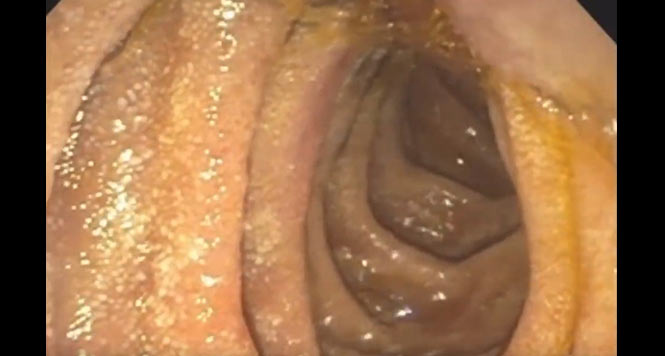First Single-Use Duodenoscope Measures up in Direct Comparison for Low-Complexity Procedures
Bret T. Petersen, MD, MASGE, reviewing Bang JY, et al. Gut 2020 Sep 7.
The development of single-use (disposable) endoscopes is one approach to eliminating infection transmission between sequential patients during endoscopy. This single-center study randomized patients undergoing endoscopic retrograde cholangiopancreatography (ERCP) to a traditional reusable instrument or the single-use Exalt Model D duodenoscope (Boston Scientific Corp, Marlborough, Massachusetts). Among 98 predominantly (>80%) low-complexity procedures in 98 patients (50 reusable, 48 single use), the rates for cannulation success, adverse events, cross-over, or use of ancillary cannulation techniques did not differ between instruments, but the median number of cannulation attempts was significantly lower with the single-use instrument (P=.013). Following adjustment for patient and procedural characteristics, only the instrument type correlated with <6 attempts to achieve cannulation on multivariate analysis (P=.012). In contrast, the single-use instrument was graded “significantly worse” for image quality (P<.001) and stability (P<.001), ease of passage to the stomach (P=.047), and function of the air–water button (P<.001).

COMMENTIn late 2019, the U.S. Food and Drug Administration (FDA) released guidance for adopting newer endoscope technologies to limit the transmission of infection during ERCP. Two single-use duodenoscopes have been cleared by the FDA (Exalt Model D by Boston Scientific and aScope Duodeno by Ambu Inc, Columbia, Maryland). This is the first randomized trial comparing any of the FDA-proposed technologies to standard instruments. Some might suggest cannulation success is highly dependent on the device and the practitioner rather than the endoscope. Nevertheless, for straightforward cases in a highly experienced center, the comparison in this study was largely favorable. Future studies should clarify the function and durability of single-use instruments for more involved interventions and difficult anatomy. Hopefully, the cost-benefit of adopting this approach to guaranteed instrument sterility will be understood with time.
Note to readers: At the time we reviewed this paper, its publisher noted that it was not in final form and that subsequent changes might be made.
CITATION(S)
Bang JY, Hawes R, Varadarajulu S. Equivalent performance of single-use and reusable duodenoscopes in a randomised trial. Gut 2020 Sep 7. (Epub ahead of print) (http://dx.doi.org/10.1136/gutjnl-2020-321836)


